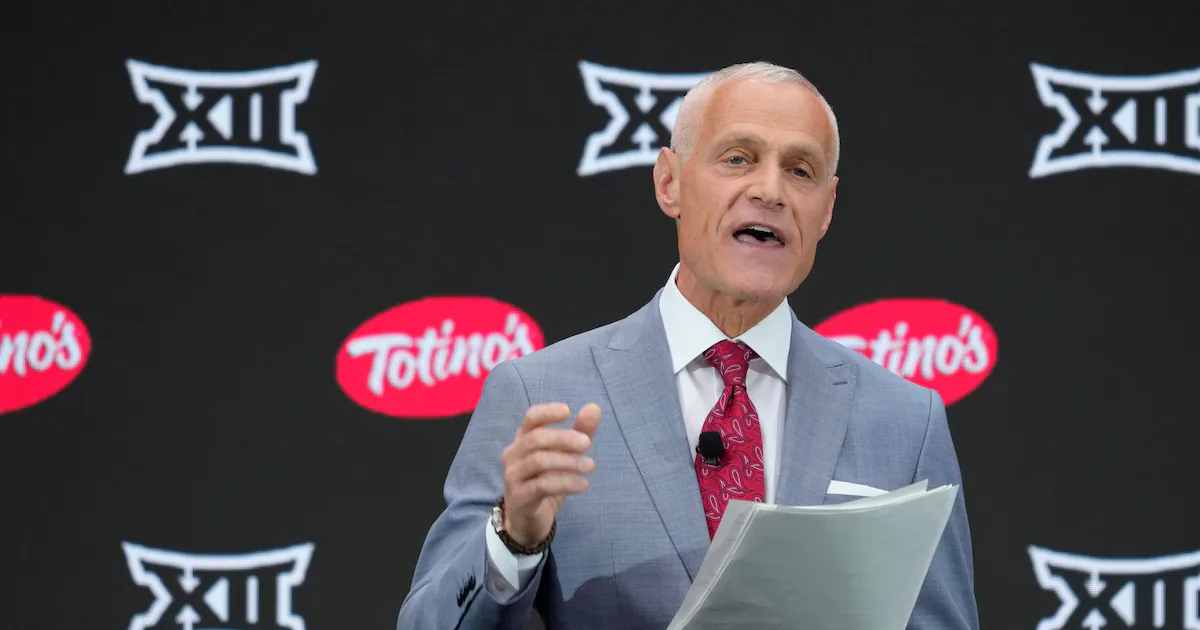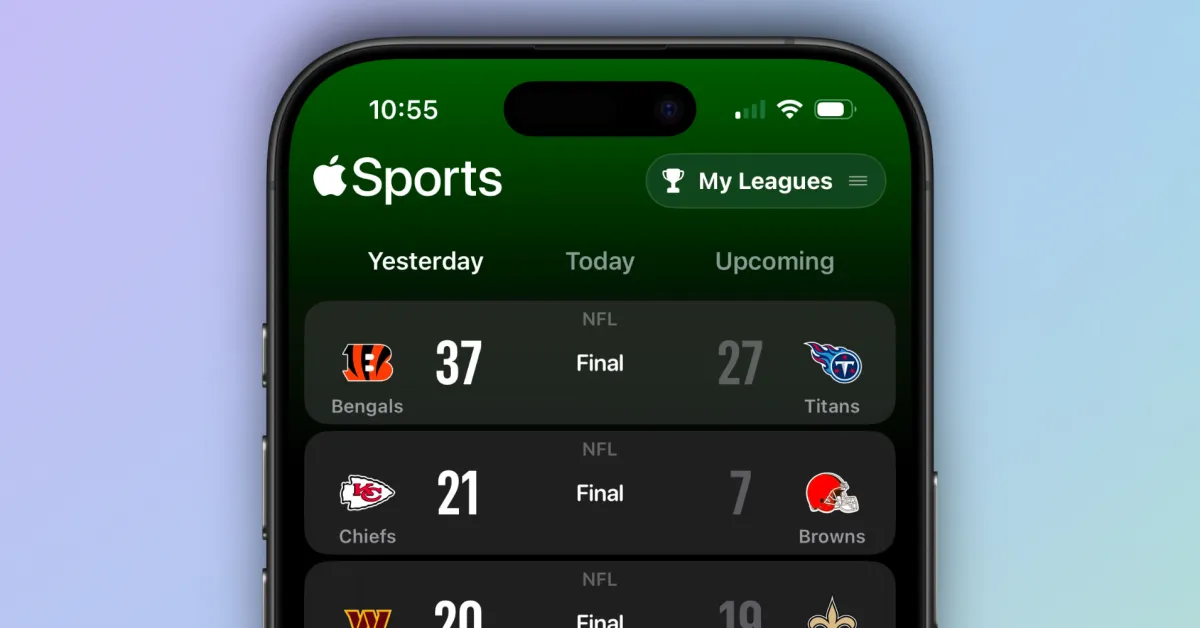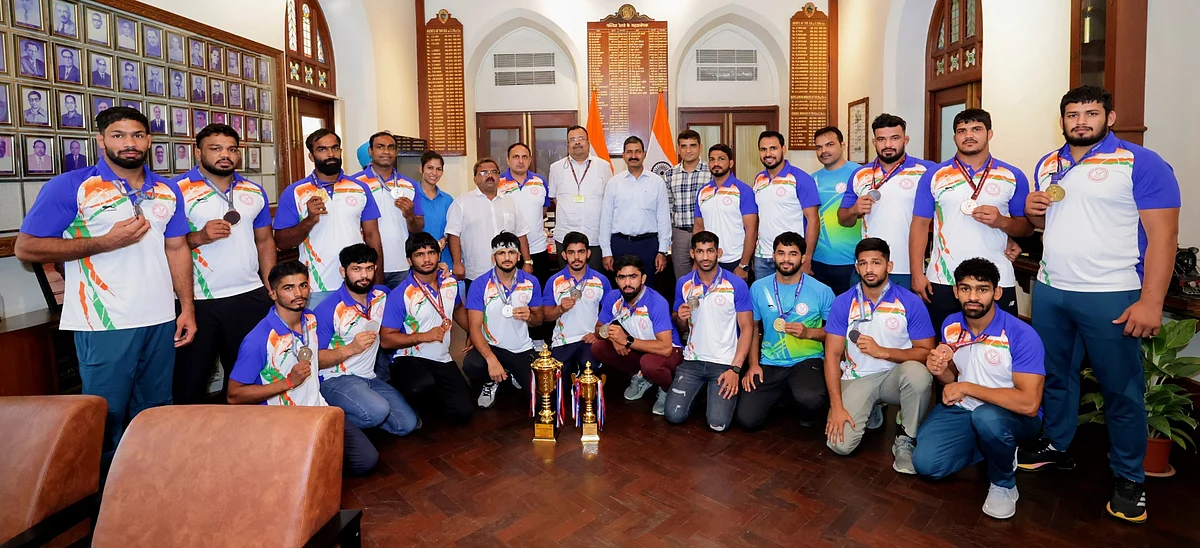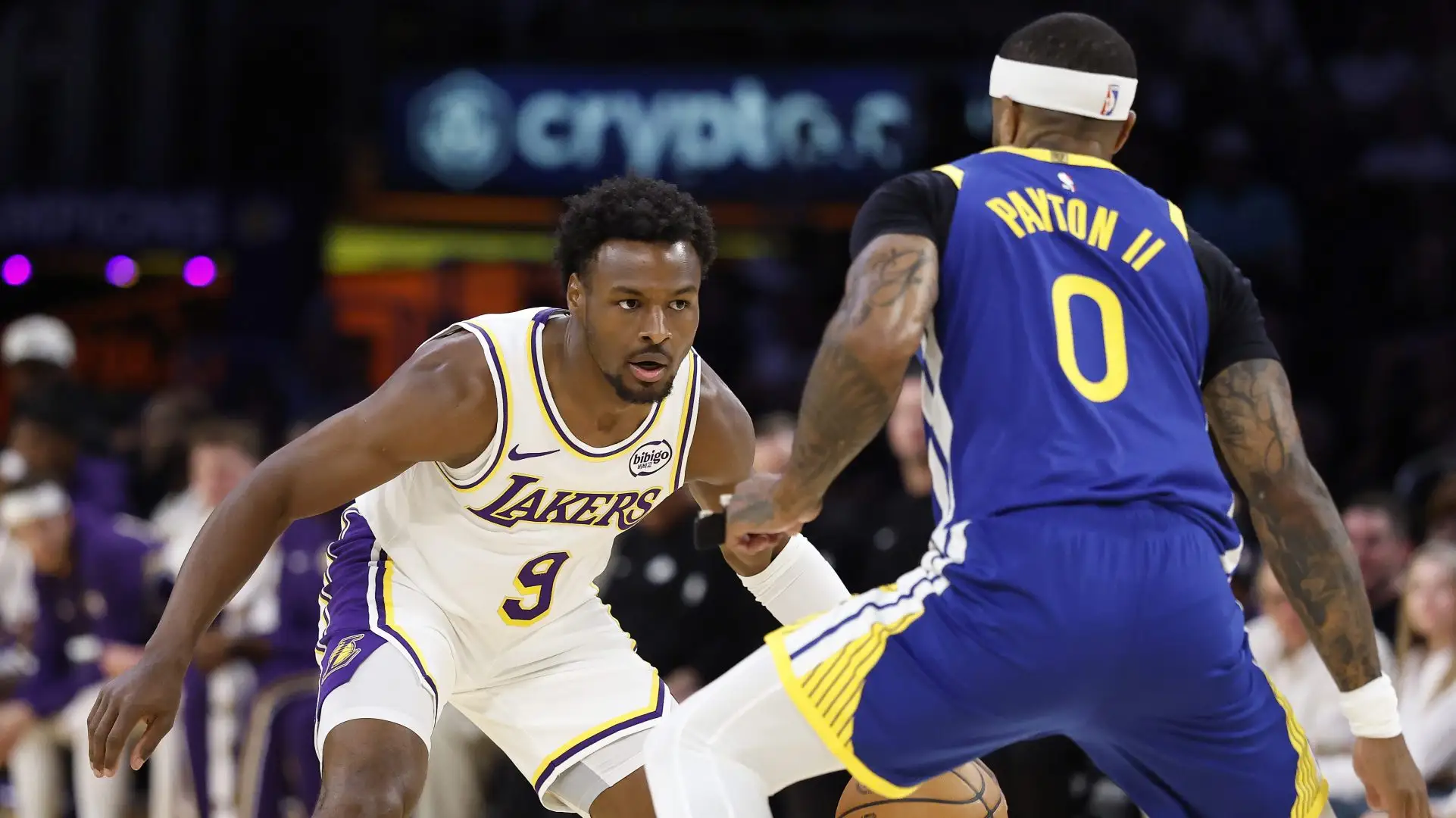Copyright Salt Lake City Deseret News

KANSAS CITY — Brett Yormark understandably is bullish on the state of Big 12 college basketball. “It’s a battle every night,” he said Tuesday of the grind of Big 12 hoops. “When we talk about Big 12 men’s basketball, we’re talking about the premier conference in the country.” That was one of several definitive statements from the Big 12 commissioner during the league’s basketball media days at T-Mobile Center in Kansas City this week. From College Football Playoff and NCAA Tournament expansion to the College Sports Commission and private equity, Yormark touched on a variety of subjects during his commissioner address. Here’s a look at some of what Yormark said about several topics that are pertinent in the current college athletics landscape. On NCAA Tournament expansion The NCAA is reportedly close to an agreement to expand the NCAA men’s basketball tournament from 68 to 76 teams, according to a report earlier this month from On3’s Ross Dellenger. The expanded field would take effect with the 2026-27 season, Dellenger reported, and the additional eight teams would join what would be considered the “opening round” while playing on Tuesday and Wednesday on the first week of the event. Yormark said he’s in favor of expansion of the NCAA Tournament, as long as the economics make sense, while adding that “a format that improves access and economics without losing what makes the event so special is worth exploring.” “That’s an NCAA decision, you know, but from a conference perspective and I’ve spent a lot of time with our ADs and our coaches, we’re in favor of modest expansion,” Yormark said. “Let’s use 76 as a working number, might not be the number, but we’ll use it as a working number. “But the right economics have to come with that, as I’ve discussed and I’ve reinforced that over the last couple of months. And I do believe that there’s momentum for expansion. You’re hearing it talked about a little bit more.” Already, the College Football Playoff has expanded from four teams to 12, beginning last season. Arizona State was the Big 12’s representative in the playoff last year, losing to Texas in the quarterfinals. There’s already been reports about expanding the CFP further, to potentially 16 teams. In May, ESPN reported that a 5+11 model — with five conference champions and 11 at-large teams — is “gaining traction.” Yormark said there haven’t been any recent talks about alternative formats but added if discussions arise, “We’ll do our due diligence to ensure that the Big 12 is positioned for postseason success.” The Big 12 currently has four teams ranked in the Associated Press top-25 rankings. That includes unbeaten BYU at No. 11, Texas Tech at No. 14, Cincinnati at No. 21 and Arizona State at No. 24. The first CFP rankings of the 2025 season will be released Nov. 4. “As the season progresses, I fully expect we’ll have multiple teams competing for a spot in this year’s College Football Playoff,” Yormark said. When asked if he would be in favor of an expanded format that would include equal number of spots for each Power Four conference, including the SEC, Big Ten and ACC along with the Big 12, he said, “I’d be up for that.” “I’ve always said you got to earn it on the field. Nothing should be predetermined come the beginning of the season. So if there was a conversation about a format that gave the four power conferences the same amount of a chance, I’m all ears,” Yormark said. “We’ve got to be thoughtful about whatever format change. The 12-team format worked. Last year it was dramatic. I mean, it was great football. You had the right teams in and that’s all I want. I want to give our schools a chance each and every year to compete at the highest levels in the college football playoff. And if we’re on equal footing with our colleagues. I’m all-in on that conversation.” On the College Sports Commission With revenue sharing now a reality in college athletics, allowing schools to pay up to $20.5 million per year to student-athletes, the College Sports Commission was created as an independent organization to help regulate name, image and likeness deals as well as revenue sharing. Yormark shared why he’s in favor of having the CSC in place to help enforce regulations in a new college sports era. “As I’ve said before, this is about progress over perfection and we’ve made great progress. I meet weekly with (CSC chief executive officer) Bryan Seeley and my fellow commissioners and while some have expressed concern about how long it’s taking some NIL deals to get approved, I’ll say this. That’s not a glitch. That’s a feature,” Yormark said. “The CSC is doing the critical work to ensure there’s no pay for play in our industry. Deals that aren’t above board are getting the scrutiny they deserve. This is a new era of enforcement. Complying with these new rules is not optional. Bryan and his team are in the process of hiring ahead of investigations, and once all of our schools have signed the participation agreements, I expect the CSC’s enforcement efforts to be strong and robust.” On private equity in college athletics The Big 12 has previously explored private equity, though in May, Yormark told Front Office Sports the league was pausing looking into that avenue. The Big Ten is reportedly in advanced talks over a private capital deal worth potentially over $2 billion, though after a meeting of league presidents and chancellors last week, a deal “does not appear imminent,” according to ESPN. On Tuesday, Yormark said private equity doesn’t work for the Big 12. “It’s incumbent upon all commissioners to look at different options that they can bring back to their boards. And some of those options make sense, some don’t. But it’s incumbent upon us to do that. And I’ve done that and I did it early, in fact. And we like where we are right now. That doesn’t mean we’re not exploring different options, but private equity for us doesn’t work,” Yormark said. “We’re very bullish in our future. We’re not giving a stake to anyone. We want that upside. We believe that there’s real upside over the course of the next six to eight years, especially when we go into that media market in January of (20)30. So private equity doesn’t work for us. Could there be other scenarios that present themselves? Maybe, but private equity doesn’t work for us.” On pursuing global television rights One area Yormark said the Big 12 is pursuing is monetizing global television rights, calling it a “long-term goal” to create relevance on a global scale. “I think college basketball will continue to grow globally. As our conference grows its brand internationally, basketball will play a crucial role,” Yormark said. “10% of our Big 12 student-athletes are international students. We’ve got Baylor women’s basketball in France this November, in addition to our football games happening in Ireland and London next fall.” Yormark discussed both the short-term and long-term benefits that could come from expanding global TV rights. Those include enriching the student-athlete experience for international students and could include recruiting boosts. “Short-term, it’s how do we provide a great cultural experience for our student-athletes, because that’s what ... the business we’re in. Two, I think it certainly globalizes our conference, our brand, our narrative. It could be a recruitment catalyst,” Yormark said. “You know, when you think about enrollment and student-athlete recruitment in general, long term, I want to monetize our international TV rights. It’s something currently we give away and as we become more globally relevant over the next six years before we go back into the marketplace, that’s a goal of mine.” He added, “How do we become more globally relevant? In fact, our content right now is being distributed in Europe through the DA Zone, which is a streaming platform in Europe. So many of our football games this year have been aired across the pond and in other markets across the world. And we’ll see that more and more now. But I think we can win globally. I’m convinced of it and we’ll be thoughtful and strategic about it.”



